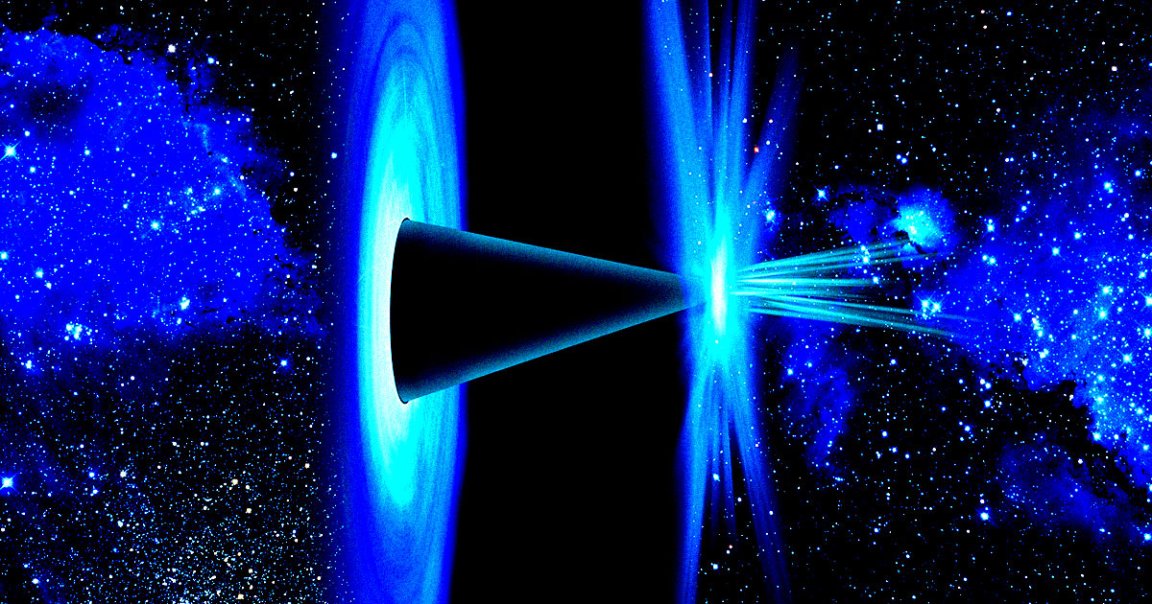
Getting Wormer
Researchers suggest that tiny wormholes could be punching microscopic holes through the fabric of space-time, Live Science reports, thereby driving the accelerating expansion of the universe.
For decades, scientists have used a hypothetical form of energy called dark energy to explain why the universe isn’t just expanding, but doing so at a rate that accelerates over time.
Over the years, scientists have floated many ideas to explain dark energy, ranging from it hiding in black holes to not existing at all.
And now, as detailed in an April paper in the journal Physical Review D, an international team of researchers is proposing a new candidate: unfathomable numbers of subatomic wormholes that connect points in space and are continuously being destroyed and reborn.
Tunnel Vision
According to the researchers’ calculations, ten billion wormholes per cubic centimeter per second could account for the observed rate of the universe’s expansion.
“Although our result was derived on the grounds of Euclidean quantum gravity… it is likely that our modification may hold for other quantum gravity theories as well,” University of Thessaly doctoral student and coauthor Stylianos Tsilioukas told Live Science.
The team argued that their candidate for dark energy aligns with observations of the actual universe.
“According to our proposal dark energy can change as time flows,” Tsilioukas added. “This is a major advantage because recent observations suggest that the rate of expansion of the universe is different in recent times than it was in the early universe.”
Of course, it’s just a theory — and more research is needed.
“We are working right now on a model which calculates the rate of wormhole formation,” Tsilioukas said. “The research seems promising and we hope to publish the results very soon.”
More on wormholes: Dark Matter May Be a Deformed Mirror Universe, Scientists Say